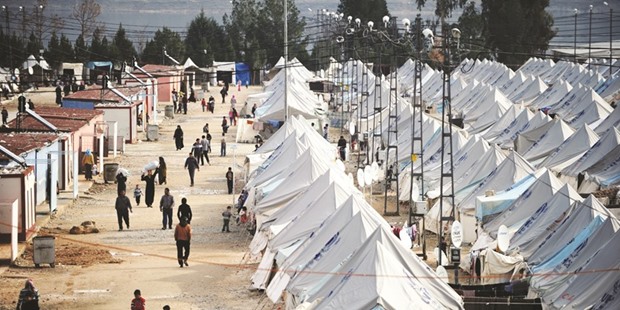The issue of granting citizenship to the Syrians was one of the most important topics on the agenda for Turkey back in July 2016. The issue had been a subject of heated debate and attracted many comments, when the conversation surrounding this topic suddenly gained a new dimension. On the evening of July 15, 2016, Turkey faced a bloody coup attempt. In the wake of this treacherous attack, the conversation surrounding this issue from the perspective of Turkish citizens would deepen and continue for a long time to come.
Only one year prior in February 2016, the issue of citizenship for Syrians, which at that time had not long been publicly discussed, was voiced by President Erdogan in Bahrain. Throughout Turkey, the number of those who had a positive approach on the issue was in the majority; but as it is with every community, those who are opposed were also making themselves heard through various ways.
Let us summarise the refugee issue in Turkey through an overall assessment. According to official records, there are 2.8mn Syrians and 300,000 Iraqis currently living in Turkey. This rate elevates Turkey as a country that harbours the most asylum-seekers in the world. The money that the Turkish state has spent for the asylum-seekers, so far is $25bn. Those who come from Syria are granted the “asylum-seeker” status in Turkey.
Turkey signed the UN Refugee Convention in 1951, announcing that it would only accept those coming from Europe as refugees according to the circumstances of the time. In 1994, the Turkish government announced that temporary refugee status would be granted to those coming from outside Europe. A new arrangement was also made in 2013 following the latest developments. This regulation provided various conveniences for those coming from Syria and Iraq, but still did not allow them to be considered refugees.
Although Turkey has mobilised all its means for the Syrians it hosts, the fact that these people do not bear the title of “refugees” deprives them of long-term opportunities such as citizenship, residence and employment.
Since the deplorable war in Syria continues in all its ruthlessness, leaving these people homeless, stateless and unsafe, the decision that has just been taken by the Turkish Government is quite accurate. Although the government has stated that the qualified Syrians will be gradually granted citizenship, what should actually be done is to give citizenship to all the Syrians in our country.
In this regard, security is of particular concern, and those who will be granted citizenship are required to have no terrorist criminal records and go through security inquiries. After undertaking these inquiries, as brothers and members of the same religion, it is our obligation to make our brothers and sisters, whom we have been hosting for years, citizens of our own country.
Turkey is a democratic country; surely, everyone should be able to freely express their opinion. Some may feel personal reservations over granting citizenship to Syrians and they can voice it as they wish. But it is important that these reservations are not a product of mass psychology, and that the reactions in this regard are founded on a rational and conscientious basis. Just like in every society, similar reactions might be triggered in Turkey as well, through mass propaganda and provocations. Turkey, however, is responsible for acting upon its conscience, not upon mass, egoistic or political accounts.
In response to those who are trying to present the subject of granting citizenship to Syrians as a political issue, government officials have stated that the naturalisation process will take place after the Constitutional referendum that will be held in March. Furthermore, the Syrians who are granted citizenship will not be able to vote for one year. This makes it clear that the decision is not based on accounts of political interest.
Those who have the false pretension that they will suffer from limited amenities when Syrians are accepted as citizens are worrying for no reason. With the breakthroughs made in recent years in matters such as welfare and social security, Turkey has proven to be a country that would not let its citizens be in despair. No one will lose their jobs, no one will go out of their business, no one will suffer any restrictions on their social and educational rights just because Syrians are granted citizenship. Guests always bring with them abundance. It is likely that the contributions of our Syrian brothers and sisters to the business world in Turkey will further expand trade links and business opportunities with the Islamic world.
One should always keep this fact in mind: If any Muslim around the world is experiencing hardship, all Muslims are responsible for the situation he is in. If a fraction of Muslims is in distress, it is the fault of other Muslims who remain silent and fail to unite against this oppression. So, the selfish approach of saying “refugees are not my concern” is inappropriate and a horrific viewpoint that can pave the way for greater disasters, especially nowadays when the oppression is more prevalent.
Turkey should indiscriminately grant Turkish citizenship to “all Syrians” who reside in its soil and do not pose any political and judicial risks. Muslims should raise a protective shield over those in distress.
The mechanism that steers the world is not political manoeuvring and profit accounts as people assume. The world runs metaphysically. The alliance of good will always prevail; it will always remain strong and powerful. It is our duty to always remember this fact and strive as hard as we can to become one of the good ones. And protecting and looking after the Syrians is an excellent opportunity to that end.

A Syrian refugee camp in Turkey.
